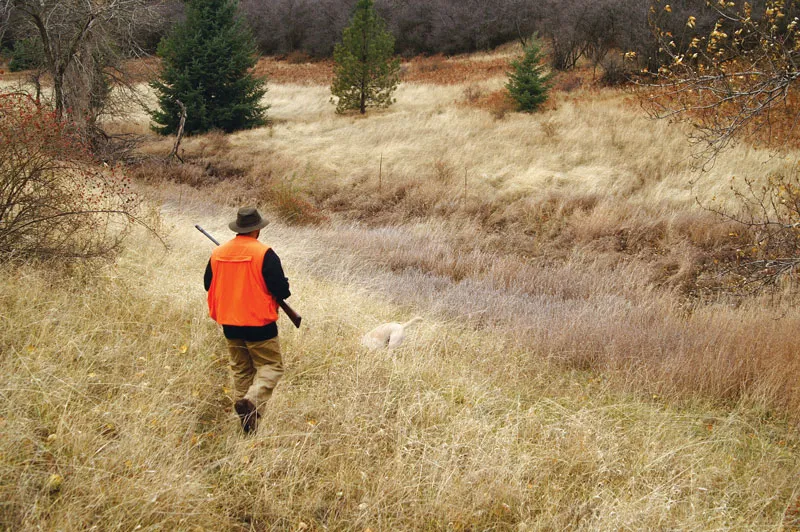Hunting has been an integral part of human history for thousands of years. From survival to sport, the act of tracking and harvesting game has evolved significantly, yet its core remains deeply rooted in tradition, skill, and respect for nature. Today, hunting offers not only the excitement of the chase but also the opportunity to connect with the great outdoors, learn about wildlife, and enjoy quality time with friends or family.
The Modern-Day Appeal of Hunting
While hunting was once primarily a means of securing food, it has transformed into a popular recreational activity enjoyed by millions around the world. Many hunters are drawn to the experience not just for the harvest, but for the entire process — from scouting and preparation to the patience and focus required during the hunt itself.
One of the biggest appeals of modern hunting is its ability to bring people closer to nature. In a fast-paced, technology-driven world, stepping into the wilderness provides a much-needed escape. The quiet of the forest, the fresh air, and the opportunity to observe wildlife in its natural habitat all contribute to the mental and emotional benefits of hunting.
Conservation and Responsible Hunting
Responsible hunting plays a crucial role in wildlife conservation efforts. Across many regions, regulated hunting helps maintain balanced ecosystems by controlling animal populations. Overpopulation of certain species can lead to habitat destruction, increased disease transmission, and food shortages for wildlife. When managed properly, hunting helps prevent these issues, ensuring a healthy environment for both animals and humans.
Moreover, hunting licenses and permits often fund conservation programs, habitat restoration projects, and wildlife research. Hunters, through their participation and financial contributions, actively support the preservation of the very landscapes they enjoy.
Preparing for a Successful Hunt
For beginners and seasoned hunters alike, preparation is key to a safe and successful hunt. Understanding local laws and regulations, obtaining the necessary permits, and familiarizing oneself with hunting ethics are essential first steps. Additionally, practicing marksmanship, learning about animal behavior, and scouting hunting grounds can significantly improve the chances of success.
The right gear is also critical. From selecting the appropriate firearm or bow to choosing weather-appropriate clothing, every detail matters. Safety equipment, such as first aid kits, communication devices, and proper navigation tools, should never be overlooked.
Finding the Perfect Hunting Opportunity
In recent years, planning a hunting trip has become easier than ever. Whether you’re seeking a weekend getaway or a more adventurous expedition, numerous resources are available to help you discover the ideal hunting experience. Platforms now exist where hunters can explore various options, compare hunting packages, and connect with experienced guides.
If you’re ready to embark on your next outdoor adventure, you can Book your hunt with ease and confidence. Access to verified hunting opportunities ensures a seamless, safe, and enjoyable experience for both novices and experienced hunters.
The Ethical Hunter’s Mindset
Ethical hunting extends beyond following regulations. It involves showing respect for wildlife, minimizing suffering, and making use of the animal in a responsible manner. Many hunters view the experience as a way to foster a deeper appreciation for nature and wildlife.
An ethical hunter understands the importance of fair chase, pursuing game in a manner that does not give the hunter an unfair advantage. Additionally, efforts to minimize environmental impact, such as practicing “leave no trace” principles, help preserve the beauty and integrity of hunting grounds for future generations.
Conclusion
Hunting remains a rewarding activity that offers far more than the pursuit of game. It fosters a deeper connection with nature, supports conservation efforts, and allows individuals to challenge themselves physically and mentally. With the right preparation and mindset, anyone can experience the thrill and fulfillment that hunting provides.
Whether you’re new to the world of hunting or looking to plan your next expedition, taking the first step toward your adventure has never been easier, so gear up, head outdoors, and embrace the hunt.
FAQs
What is the main purpose of hunting today?
Hunting today focuses on outdoor sport, wildlife management, and maintaining ecological balance rather than survival.
How does hunting help in wildlife conservation?
Responsible hunting controls animal populations, supports habitat management, and funds conservation through license fees.
What skills are important for hunting?
Important hunting skills include tracking, understanding animal behavior, shooting accuracy, patience, and knowledge of safety rules.
Is hunting legal everywhere?
No, hunting laws vary by country and region. Some areas have strict regulations, while others prohibit hunting certain species.
What animals are commonly hunted?
Commonly hunted animals include deer, ducks, rabbits, wild boars, and game birds, depending on the region and hunting season.
Why do people enjoy hunting?
People enjoy hunting for the challenge, connection with nature, physical activity, and the satisfaction of learning essential outdoor skills.
How do hunters follow ethical practices?
Ethical hunters follow laws, respect hunting seasons, avoid endangered species, and use humane methods to minimize animal suffering.
Can hunting harm the environment?
Unregulated or illegal hunting can harm the environment, but responsible hunting, when managed properly, can support ecosystems.
How do hunting licenses support conservation?
Hunting licenses generate funds that are used for wildlife research, habitat protection, conservation education, and anti-poaching efforts.
What equipment is essential for hunting?
Essential hunting equipment includes appropriate firearms or bows, safety gear, camouflage clothing, tracking tools, and knowledge of the terrain.
